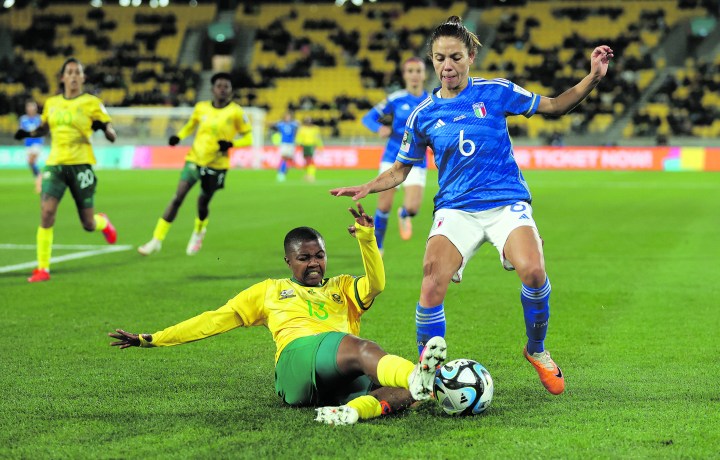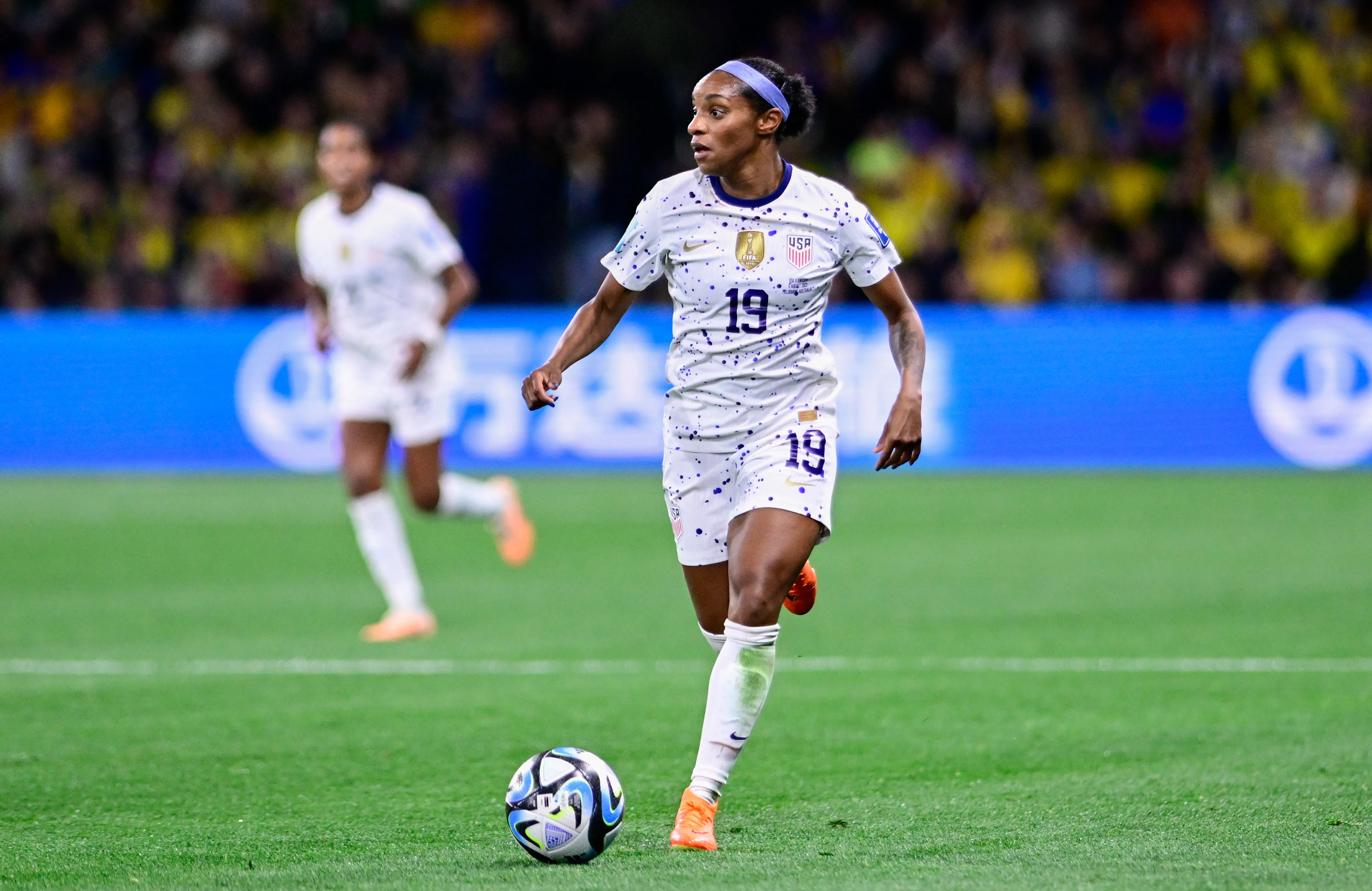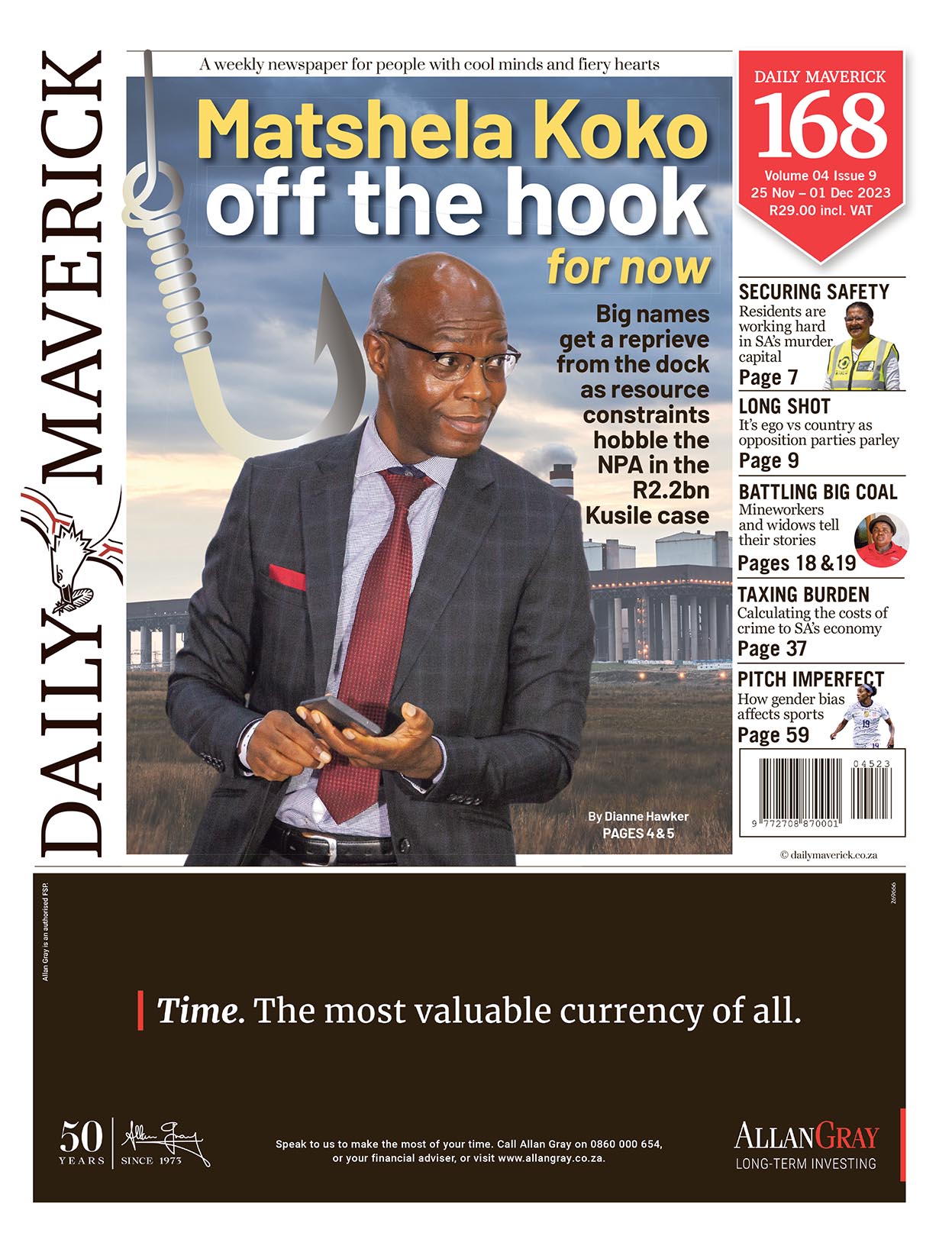FOOTBALL
Gender biases affect how people see women’s football, study finds

People often apply double standards in evaluating the quality of women’s sports, especially soccer. And it’s reflected in players’ salaries and media coverage.
During the 2023 Fifa Women’s World Cup, the telecommunications company Orange ran a powerful TV ad. It depicts the graceful agility and dramatic goal-scoring shots from French national players such as Antoine Griezmann, Kylian Mbappé and Olivier Giroud.
Then comes the catch. After about a minute, the viewer sees that the highlights have been artificially modified: all of the players are actually from the French women’s national team.
The ad seeks to push back on a common criticism of women’s sports: that female players aren’t as entertaining as their male counterparts, and the action is less exciting than it is in men’s sports.
In our recently published study, Gender Information and Perceived Quality: An experiment with professional soccer performance, we decided to put this notion to the test. We obscured the gender of soccer players and asked participants to rate the performances of the athletes they viewed.
A pay and coverage gap

Crystal Dunn of the United States in action against in Melbourne, Australia, in the 2023 Fifa Women’s World Cup. After filing a gender discrimination lawsuit against US Soccer, the US women’s national soccer team were guaranteed equal pay to their male counterparts in 2022. (Photo: Richard Callis/ISI Photos/Getty Images)
Sports is one of the world’s largest markets – estimated to be around US$83-billion (R1.57-trillion) in the United States alone. But any fan, casual or serious, can readily observe striking gender differences in media coverage and player salaries.
Outside of the Olympics, only about 4% of all sports media coverage around the world is devoted to women’s sports. Live events are much less likely to be broadcast, and only one woman, retired tennis star Serena Williams, is among Forbes’s 50 highest-paid athletes in the world.
In 2019, the US women’s national soccer team filed a gender discrimination lawsuit against US Soccer. Even though the squad had won the past two women’s World Cups – and the men’s team hadn’t reached a semifinal since 1930 – the women weren’t paid as much as their male counterparts.
In 2022, the two sides came to an agreement guaranteeing equal pay. But the dispute offered a window into the thinking of many sports executives and fans.
US Soccer’s legal counsel stated that the women’s team plays “a different game” from the men’s “in the sense that men are bigger, stronger, faster”.
Research has proven that women’s and men’s soccer does indeed differ in several physical aspects – for example, male soccer players cover more ground and run faster during games.
But the question is whether the physical differences of women necessarily make the games less entertaining. The existence of stereotypes points to an alternative possibility: gender biases might influence perceptions of the quality of the games.
Physical differences are often used to sustain sexist assertions that most women’s sports are boring and slow. This narrative – especially prominent among detractors of women’s sports and internet trolls – probably influences mainstream attitudes towards sports such as women’s basketball and women’s soccer.
When gender is obscured, differences disappear
Prior research shows that biases probably play a role when people evaluate the performance of women on the field and in the workplace.
It includes the work of Claudia Goldin, who was recently awarded the Nobel Memorial Prize in Economics. Her fascinating 2000 study with economist Cecilia Rouse showed how blind auditions for symphony orchestras resulted in more women being hired.
Goldin’s work inspired our study. What if we could prevent soccer fans from identifying players and test for whether gender bias influenced evaluations of the players’ athletic performance?
We set up an experiment and showed more than 600 participants highlights from men’s and women’s professional soccer videos. We asked the group, which was made up of 55% men and 45% women, to watch 10 videos and then rate the performance of the players during the goal-scoring plays on a scale of 1 to 5.
In the control group, participants watched and evaluated regular videos. For the experimental group, we blurred the gender of the players, making it impossible for participants to distinguish the men from the women.
To do this, we painstakingly went through each frame of every video and used a program to blur the bodies.
Participants who watched regular highlights evaluated the goals scored by men significantly higher. However, the difference evaporated under the experimental condition, when participants did not know whether they were watching men or women playing.
The results held even after controlling for demographics, whether they preferred men’s or women’s soccer and how often they watched soccer.
A market that’s ripe for growth
The findings reveal that gender biases influence fans’ perceptions of women’s soccer – and possibly other women’s sports.
Precisely quantifying the influence of these biases is difficult, and these types of experiments have several limitations, such as the focus on highlights and the practice of blurring, that prevent us from drawing definitive conclusions.
The findings, however, challenge conventional wisdom about the potential of the women’s sports market. Any evaluator of quality in women’s sports should stop and think about whether biases are playing a role.
People often apply a double standard in evaluating the quality of women’s sports, particularly soccer.
You’ll hear the argument that “a women’s team can never beat a men’s team”, which is used to justify why people shouldn’t care as much about women’s sports.
But in our view, that argument is beside the point. You don’t hear the same argument about the performance of boxers from different weight classes, or whether college basketball is an inferior product to pro basketball.
Despite stereotypes, biases and a late start in the business, women’s soccer keeps growing; the most recent World Cup shattered viewership records in multiple countries.
Clearly, there’s a market. And clearly, it has plenty of room to grow. DM
First published by The Conversation.
Carlos Gómez González is a postdoctoral researcher at the University of Zurich; Cornel Nesseler is associate professor of economics at the University of Stavanger.
This story first appeared in our weekly Daily Maverick 168 newspaper, which is available countrywide for R29.






















 Become an Insider
Become an Insider
Men’s soccer games have become quite boring to watch unless you have a vested interest, with maybe 15% being exciting/ enjoyable even as a neutral, whereas i find at least 50% of women’s games entertaining.
What would make the women’s game better is, given the physical differences, reduce the size of the pitch, goal & ball.